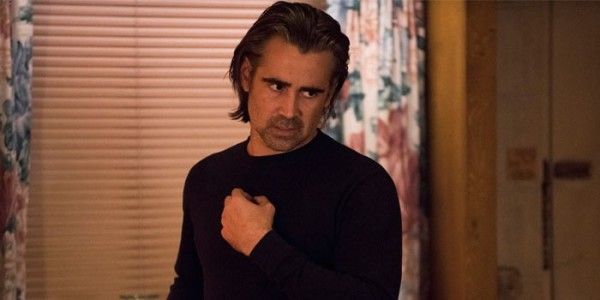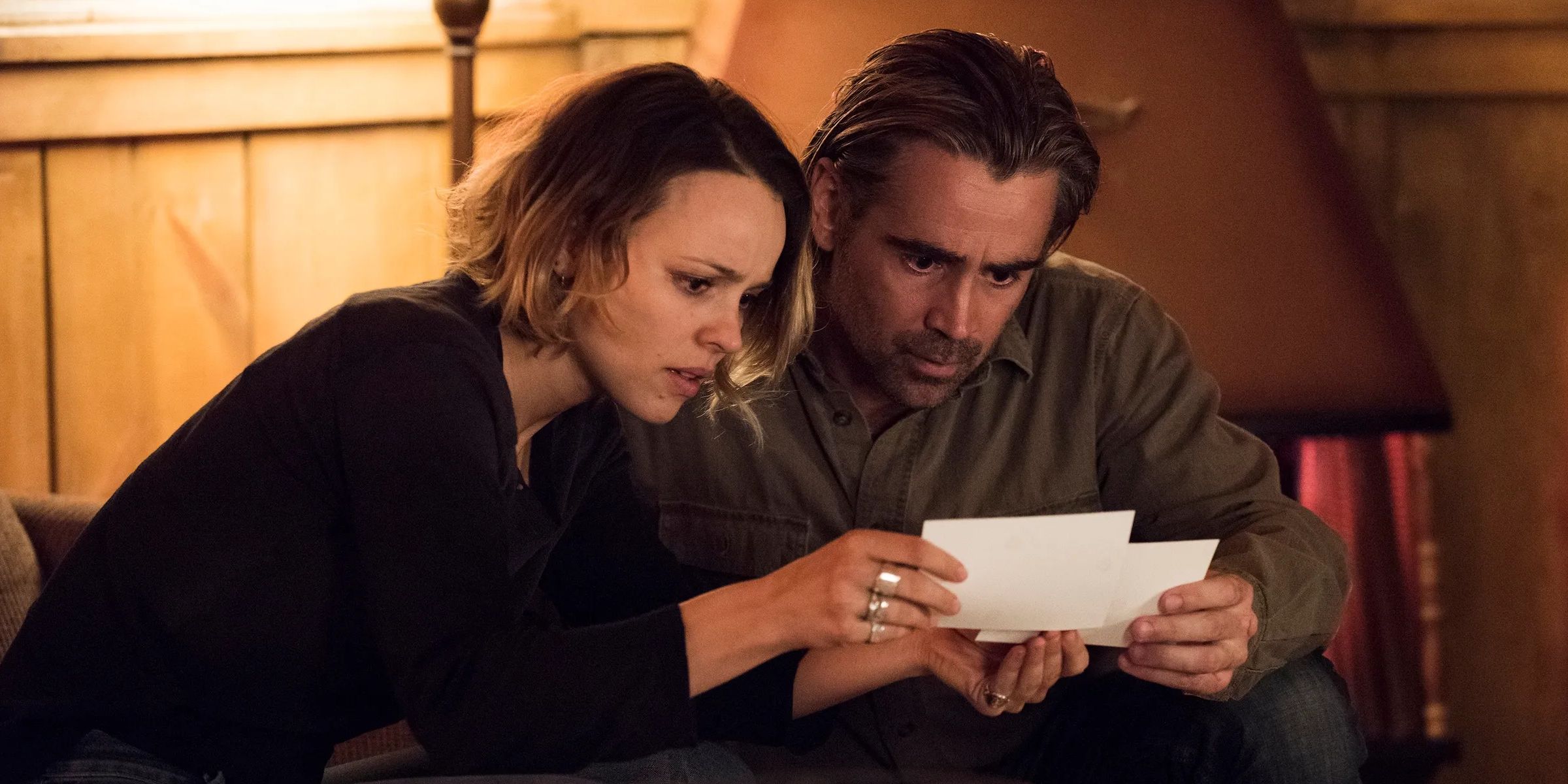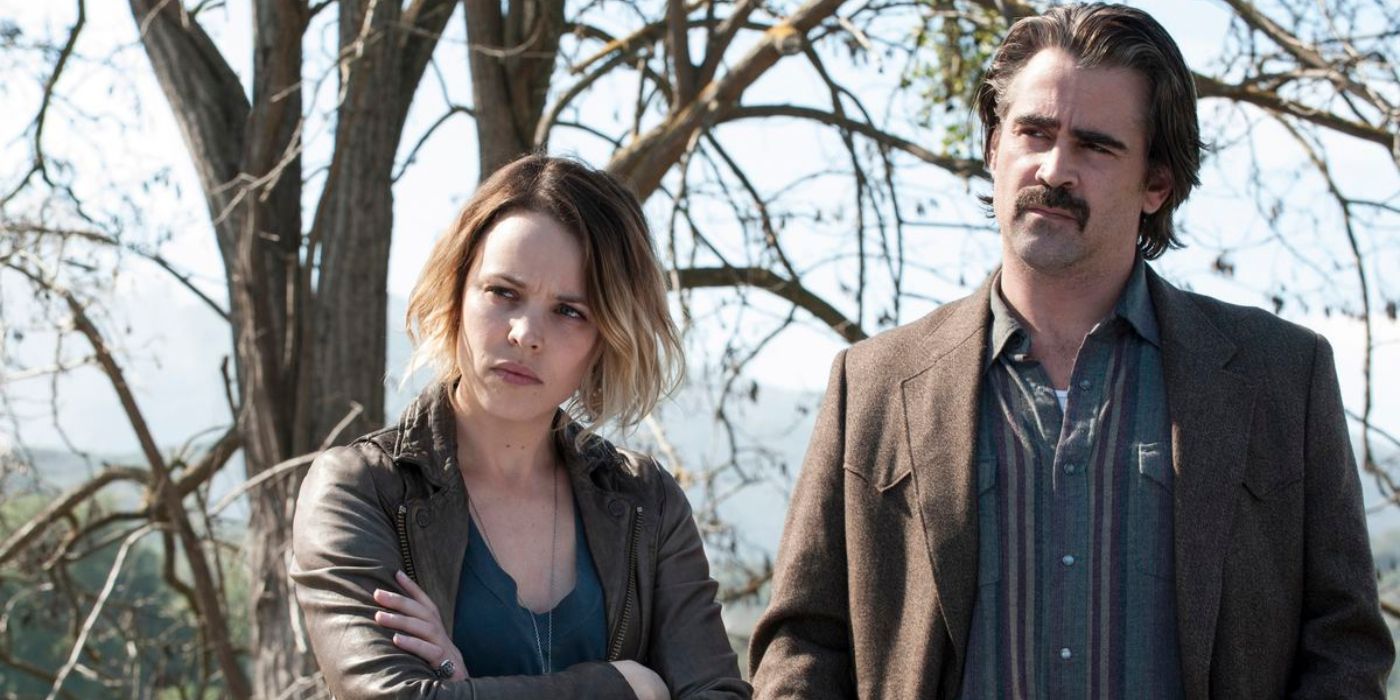It wouldn’t be an understatement to say that the first season of True Detective changed television forever. While HBO had been creating groundbreaking dramatic programming ever since The Sopranos and The Wire, True Detective approached cinematic quality with its immersive filmmaking techniques and riveting mystery story. Part of the show’s appeal was the novelty of seeing movie stars like Matthew McConaughey and Woody Harrelson work within the medium; while True Detective’s second season was a major disappointment, it was certainly not due to the lack of star power. In fact, the brilliant performance by Colin Farrell ensured that True Detective was still as compulsively watchable as it had always been.
Colin Farrell Plays a Great Anti-Hero in ‘True Detective’ Season 2

Unlike other prestige crime shows from HBO, True Detective is an anthology series that explores different sets of investigators with individual cases. While the first season of the series was a more straightforward serial killer mystery, True Detective’s second season opted for a much stranger story about the deep-seated corruption within a town in California. The Highway Patrol Officer Paul Woodrugh (Taylor Kitsch), the Criminal Investigation Division Sergeant Ani Bezzerides (Rachel McAdams), and the corrupt detective Ray Velcoro (Farrell) all become intertwined when the career criminal Frank Semyon (Vince Vaughn) begins looking into the death of the corrupt city manager Ben Caspere. While these stories are primarily told independently of each other, the plotline featuring Farrell as Velcoro contains the same dramatic tension that made the first season so successful.
While all of True Detective Season 2’s characters had their flaws, Ray is a character with such extreme violent tendencies that he is an anti-hero. Any notion of playing things “by the book” has long been lost on him, as Ray uses his authority to intimidate his enemies and cover up his series of crimes. While following such an unlikable character may have proven unsustainable for a crime series as dark as True Detective, Farrell does a great job at gradually hinting at elements of Ray’s backstory. Revelations about the abuse that his wife, Gena Brune (Abigail Spencer), endured shed insight into why Ray hates criminals the way that he does. Since his wife never received justice, Ray holds the belief that the law is only effective when taken into his own hands.
Although he frequently shows signs of toxic masculinity, Ray’s relationship with his son allows him to become a more empathetic character. Throughout the series, Ray is given the task of picking up his son, Chad (Trevor Larcom), from school; although the moments that they spend together are fleeting, it does seem like Ray is trying to make the most of what has become a crumbling relationship. As harsh as Ray’s words to Chad may feel, it’s evident that he’s trying to protect the young boy from the cruelty of the world, as he perceives any and all signs of sensitivity as an inherent weakness. Farrell can often make the best of weak material, and he treats these intimate scenes with such sincerity that they become much more moving than they would have been otherwise.
Colin Farrell Has a Great Character Arc in ‘True Detective’

While the mystery at the heart of True Detective’s second season leaves something to be desired, it proves to be the rare crime series where the investigators are more interesting than the case itself. Connecting the dots between Seymon’s crime syndicate and the murders gives Ray a strong redemptive arc, as putting an end to this current series of murders may help him to atone for the mistakes that he’s made. Although Ray is often put under pressure by both the mob and the cops to swing the case in a certain direction, Farrell does a great job of showing how his larger sense of morality takes over. While True Detective’s first season explored how history repeats itself, the possibility of Ray changing his nature suggests that the future is not set in stone.
Despite his self-professed incompetence as an investigator, Farrell shows Ray’s merits as a detective as he finds unusual ways of solving cases. In some ways, this makes his arc more tragic; Farrell suggests that Ray may have put his skills to good use if he hadn’t been so corrupted by his indulgences. Although Ray’s checkered past puts him in danger, it does allow him to subvert the standard practices of the law in order to collect evidence. This is most evident in the episode “Night Finds You,” in which Ray follows clues from Caspere’s brutalized body to find a secluded warehouse; the shootout that follows between Ray and a masked stranger is among the most visceral moments in the entire series. While Farrell needs to do more horror movies, True Detective Season 2 shares some hallmarks with the slasher genre.
Colin Farrell Has Great Chemistry With His ‘True Detective’ Co-Stars

While he is certainly the most engaging aspect of True Detective Season 2, Farrell is not the only actor who elevates the material. McAdams’ strong performance as Ani gives Ray the perfect partner, as she shares his cynical opinion of the world and aptitude for needlessly putting herself in danger. It’s enthralling to see these two headstrong personalities clash, as the chemistry between Farrell and McAdams is worthy of a better series. Despite the confusing nature of the case itself, it’s fascinating to see how Ani and Rays’ respective histories color their approach to leading an investigation.
Similarly, Farrell and Vaughn show the origin of their characters’ ruthless behavior through allusions to their shared past; although the specifics of their relationship are never completely spelled out, it’s implied that they both suffered tragedies that caused them to turn their back on humanity. While Vaughn got his breakout role in Gus Van Sant’s Psycho, it’s certainly been a while since he’s taken on darker material; Farrell helps his co-star approach the challenging material, and in turn, Vaughn also gives one of the best performances of his career. True Detective Season 2 may have been less than the sum of its parts, but Farrell’s performance is so nuanced that he makes it compelling nonetheless.

